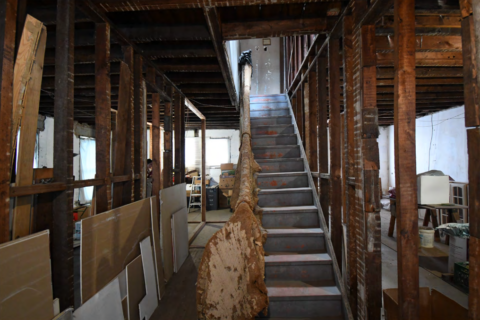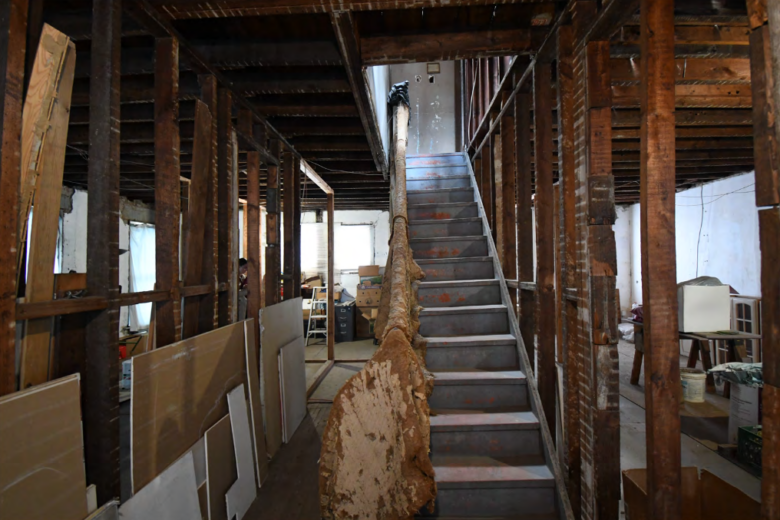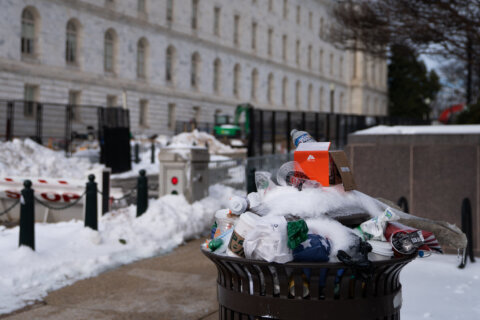
For years, people who live near a vacant Northeast D.C. property have complained about the impact it’s having on the neighborhood.
Sometimes, the building has been boarded up, and the roof and brickwork aren’t in good shape, according to Jason Jones, an assistant attorney general with D.C.’s Office of the Attorney General’s public advocacy division.
The property, located at 1000 C Street NE, sits on a corner, so many people walk and drive by it. Dogs often use the lawn to go to the bathroom and it then “collects up,” Jones said. Neighbors regularly say it weighs down the neighborhood.
Now, the owner of the property, George Papageorge and his entity, 10th & C Streets Associates, LLC, are being ordered to pay $1.8 million for tax evasion. It’s the result of a lawsuit that alleged Papageorge lied about the property’s occupancy status to avoid paying higher taxes.
Property owners have to pay higher tax rates on vacant and blighted homes.
“People in the local community knew that not only was this property vacant, but that the owner of the property was not paying his proper taxes,” Jones said. “That’s very frustrating, when you are paying your taxes, to know that someone is escaping the law.”
It’s been under the same ownership since the late 80s, Jones said, but during that whole period, “no one has ever occupied this property.” Nobody’s leased it and the owners never lived there, he said.
When neighbors complain, the Department of Buildings inspects properties and takes note if they’re vacant. But, Jones said, Papageorge filed response forms claiming the property was occupied and “attached utility records that showed very minimal usage as proof that the property was occupied.”
Papageorge would go before the Real Property Tax Appeals Commission and argue he was using the property, Jones said.
In 2021, the D.C. Council amended the city’s False Claims Act, so the attorney general could bring cases under the statute “to try to help with this problem of all the vacant properties that we have in the city,” Jones said. It provides a new way for the city to seek relief for such tax evasion.
The Papageorge case, Jones said, is the first that the OAG has brought since the change was made.
Papageorge has been ordered to pay $1.8 million, which includes taxes owed as far back as 2008, and almost $390,000 in unpaid vacant property taxes accumulated over 15 years.
The Department of Buildings is still primarily responsible for addressing vacant property disputes. OAG “is really only getting involved in situations that are really outrageous,” Jones said.
Cases involving violations of the False Claims Act are difficult to prove, Jones said. In this case, “the owner is just making these false representations over and over again. It’s a long-term pattern of abuse.”
Get breaking news and daily headlines delivered to your email inbox by signing up here.
© 2024 WTOP. All Rights Reserved. This website is not intended for users located within the European Economic Area.









